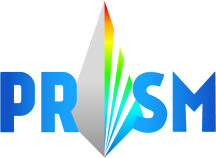
Data-Driven Success: The Analytical Approach of BCBAs
The field of Applied Behavior Analysis (ABA) therapy is rooted in science, and at its heart lies the analytical expertise of Board Certified Behavior Analysts (BCBAs). These professionals utilize data-driven methods to create impactful, individualized treatment plans for children with autism and other developmental challenges. The analytics of BCBAs form the foundation of effective ABA therapy, ensuring evidence-based decision-making and measurable progress.
In this blog, we’ll delve into how BCBAs harness analytics to drive success in ABA therapy and why this approach is crucial for achieving meaningful outcomes.
What Does “Analytics of BCBAs” Mean?
Analytics, in the context of ABA therapy, involves the systematic collection, analysis, and interpretation of data to guide decision-making. For BCBAs, this process includes:
- Defining Target Behaviors: Identifying specific behaviors to increase or decrease based on the client’s needs.
- Collecting Data: Using tools and techniques to record behavioral patterns accurately.
- Analyzing Trends: Reviewing data to identify patterns, progress, and areas needing adjustment.
- Adjusting Interventions: Modifying treatment plans based on data insights to optimize outcomes.
This analytical approach ensures that therapy is tailored, dynamic, and responsive to the unique needs of each child.
The Role of Data in ABA Therapy
Data collection and analysis are integral to every stage of ABA therapy. Here’s how BCBAs apply analytics to enhance treatment:
1. Assessment and Baseline Establishment
Before therapy begins, BCBAs conduct comprehensive assessments to establish a baseline of the child’s behaviors and skills. This involves:
- Observing the child in natural settings.
- Conducting interviews with caregivers.
- Utilizing standardized assessment tools.
The data collected during this phase provides a clear starting point and helps define measurable goals.
2. Goal Setting and Treatment Planning
With baseline data in hand, BCBAs set specific, measurable, achievable, relevant, and time-bound (SMART) goals. For example:
- Increasing communication skills by teaching the child to use a picture exchange system.
- Reducing self-injurious behaviors by introducing replacement behaviors.
These goals guide the creation of a treatment plan that is both evidence-based and personalized.
3. Real-Time Data Collection During Sessions
BCBAs rely on data collected during therapy sessions to track progress. Common methods include:
- Frequency Recording: Counting how often a behavior occurs.
- Duration Recording: Measuring how long a behavior lasts.
- Interval Recording: Checking for behaviors at set intervals.
Therapists document this data in real time, ensuring accuracy and immediacy.
4. Analyzing and Adjusting Interventions
Regular data reviews allow BCBAs to evaluate the effectiveness of interventions. If progress stalls, the BCBA can:
- Identify factors affecting success, such as environmental changes or reinforcement inconsistencies.
- Modify strategies to better meet the child’s needs.
For example, if a child is not responding to a reinforcement system, the BCBA might adjust the type of reinforcement or the schedule of delivery.
Tools and Technology in BCBA Analytics
Modern tools enhance the analytical capabilities of BCBAs, making data collection and analysis more efficient and accurate. Some commonly used tools include:
1. Behavior Tracking Software
Programs like Catalyst, CentralReach, and Rethink simplify data collection, storage, and analysis. These platforms enable therapists to:
- Input data in real time using tablets or smartphones.
- Generate visual reports, such as graphs and charts.
- Share progress with caregivers and other team members.
2. Video Analysis
Recording sessions allows BCBAs to:
- Review interactions in detail.
- Train team members using real-life examples.
- Provide feedback to caregivers.
3. Assessment Tools
Standardized assessments like the VB-MAPP (Verbal Behavior Milestones Assessment and Placement Program) and ABLLS-R (Assessment of Basic Language and Learning Skills) provide structured frameworks for evaluating progress.
Benefits of a Data-Driven Approach
The analytical approach of BCBAs offers numerous advantages:
1. Personalization
Every child’s needs are unique. Data-driven decisions ensure that treatment plans are tailored to individual goals and challenges.
2. Objective Measurement
Data eliminates guesswork, providing clear evidence of progress or the need for adjustments.
3. Transparency
Caregivers can see tangible results through graphs and reports, fostering trust and collaboration.
4. Accountability
Basing decisions on data ensures that therapy remains focused and effective, upholding high standards of care.
Challenges in BCBA Analytics
While the analytics of BCBAs are invaluable, challenges can arise:
1. Data Overload
Collecting excessive data can be overwhelming. BCBAs must prioritize meaningful metrics to avoid burnout and inefficiency.
2. Human Error
Inconsistent data recording by team members can skew results. Ongoing training and the use of technology help mitigate this issue.
3. Adapting to Dynamic Situations
Children’s needs and behaviors can change rapidly. BCBAs must remain flexible and responsive to evolving data.
The Future of Analytics in ABA Therapy
The field of ABA therapy is continually evolving, with advancements in technology enhancing the analytical capabilities of BCBAs. Emerging trends include:
1. Artificial Intelligence (AI)
AI-powered tools can analyze vast datasets to identify patterns and predict outcomes, allowing for even more precise interventions.
2. Wearable Technology
Devices that monitor physiological data, such as heart rate and stress levels, can provide additional insights into behavior triggers.
3. Telehealth and Remote Data Collection
Virtual platforms enable data collection and analysis from a distance, increasing accessibility for families in remote areas.
Conclusion
The analytics of BCBAs are the cornerstone of successful ABA therapy. By leveraging data to guide decisions, BCBAs ensure that interventions are effective, personalized, and responsive to each child’s needs. At Prism Learning Center, we are committed to employing data-driven strategies that empower children and their families to achieve meaningful progress.If you’re ready to experience the benefits of data-driven ABA therapy, contact us today to learn how our expert BCBAs can make a difference in your child’s journey.
